This week’s newsletter:
 ︎ 1. Editor’s Note
︎ 1. Editor’s Note
 ︎ 2. What Made an Impact
︎ 2. What Made an Impact
 ︎ 3. What Went Viral
︎ 3. What Went Viral
 ︎ 4. What’s Iconic
︎ 4. What’s Iconic
 ︎ 5. What’s Controversial
︎ 5. What’s Controversial
 ︎ 6. What’s Shocking
︎ 6. What’s Shocking
 ︎ 7. What’s Funny
︎ 7. What’s Funny
 ︎ 8. What Words to Know
︎ 8. What Words to Know
Dear Reader,
On the night of October 16, 2010, the 22-year-old Li Qiming (李启铭) was drunk driving when he ran down two female college students roller-skating around the campus of Hebei University, killing one of them and severely injuring the other.
When he was arrested after fleeing the scene of the accident, Li Qiming showed neither concern nor remorse, and yelled: “Sue me if you dare! My Dad is Li Gang!” Li Gang was the deputy director of the local public security bureau.
“My Dad is Li Gang” (“我爸是李刚”) instantly became a popular Internet meme in China. The Hebei University incident garnered widespread attention as it touched upon several societal concerns, one of which was the mounting frustration regarding “guān èr dài” (官二代) – children of (former) government officials granted special privileges.
The phrase quickly spread far and wide, and people’s outrage started transforming into humor. The Chinese online community mop.com even organized a contest encouraging netizens to incorporate the phrase ‘my dad is Li Gang’ into classical Chinese poems, which drew thousands of entries.
Meanwhile, the Bureau of Transport in Liuzhou, a city in Guangxi, used the phrase humorously on road signs that read, “Dear friends, please drive slowly. Your father is not Li Gang.” In contrast, a Chinese company produced car stickers stating: “Don’t touch me, my dad is Li Gang” (“别碰我,我爸是李刚”).
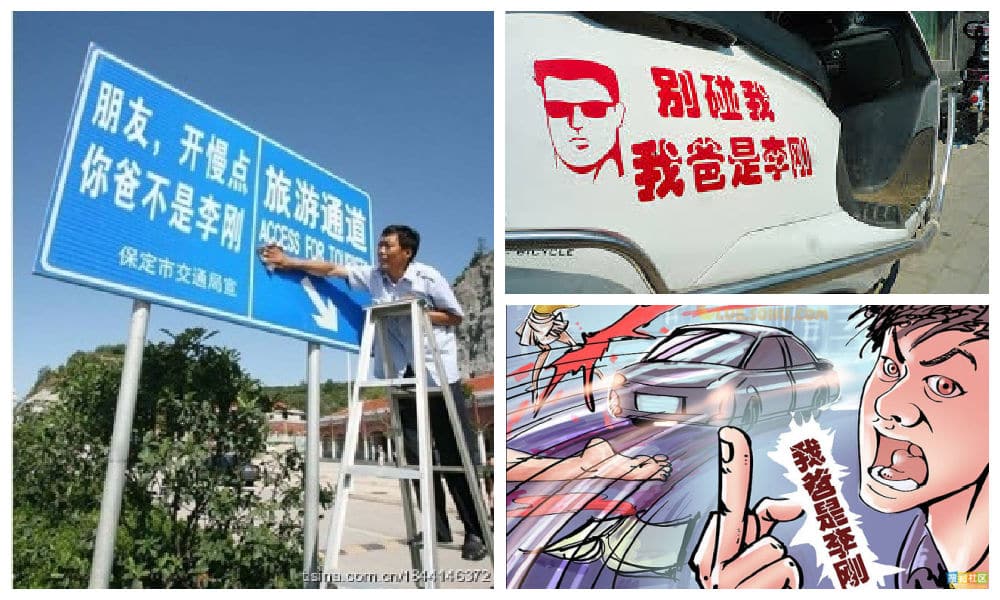
The slogan ‘My dad is Li Gang’ popped up everywhere, both online and offline.
That year, I often felt out of the loop when my Chinese friends in Beijing would use the ‘my dad is Li Gang’ sentence – referencing both the avoidance of responsibility and abuse of power – or other online memes in their jokes and discussions, often leading to the whole table bursting out laughing. I wanted to understand this aspect of China I knew so little about.
I realized that viral stories like the Li Qiming campus crash – and how they become embedded in collective memory in the digital age – were about much more than that tragic accident alone. It was not just about guān èr dài; it also reflected the disparities in wealth, other unequal social dynamics, on-campus traffic safety concerns, the issue of drunk driving, the way the story was suppressed and shaped by official channels, and the legal system (Li received a six-year prison sentence, which many people thought was too light).
As the role played by domestic social media continued to grow in China, particularly in the early years following the launch of Sina Weibo in 2009, I began to recognize the increasing significance of digital culture and online trends as a valuable lens through which to observe China’s rapid development and changing society.
So, in 2012, I registered the domain whatsonweibo.com and started writing the first articles for What’s on Weibo in 2013. My goal was to establish a platform to report on important social trends in China. I wanted to cover not only what’s happening on Weibo but also in the broader Chinese online media world. This would help me gain a better grasp of the popular topics and the narratives that revolve around them. At the same time, I aimed to share these insights with a wider audience and create a connection between the Chinese-language and English-language online media scenes.
Ten years later, What’s on Weibo has grown into a website that has been visited by millions, garnered frequent mentions in international media, and been cited as a source in dozens of academic publications.
Chinese social media environment has seen several shifts through the past decade. The role played by Chinese social platforms, from Weibo to Wechat, from Douyin to Xiaohongshu, has become increasingly multifaceted. Enough reason to keep going and report on all the China trends that matter for the years to come.
In this special 10th anniversary newsletter, I’ve curated a selection of our most widely-read articles across various categories. I want to extend a special thank you to Miranda Barnes, who has served as a trend and news spotter for What’s on Weibo for the past six years. Throughout this time, we’ve engaged in countless discussions about trending topics, why they matter, and the diverse perspectives surrounding them. I’d also like to express my gratitude to Yiying Fan, Diandian Guo, Gabi Verberg, Cat Hanson, Boyu Xiao, Jialing Xie, Yue Xin, Chauncey Jung, Wendy Huang, and Zilan Qian, whose contributions have been so valuable to the site. Additionally, there are many others who have contributed occasionally, shared ideas, feedback, and suggestions – you know who you are – please understand that all of your input is highly appreciated.
Thanks to the support of a dedicated group of loyal readers and subscribers – you – it is possible for us to keep the site going. If you are currently not a paying subscriber, please do subscribe here to get access to all of our content and keep on receiving our Weibo Watch newsletter. I really do need your support to keep this site going for the coming years. After all, my dad is not Li Gang.
We will soon continue on our regular publishing schedule, please also follow me on X or Instagram (personal, What’s on Weibo) for the latest.
Best,
Manya
What Made an Impact
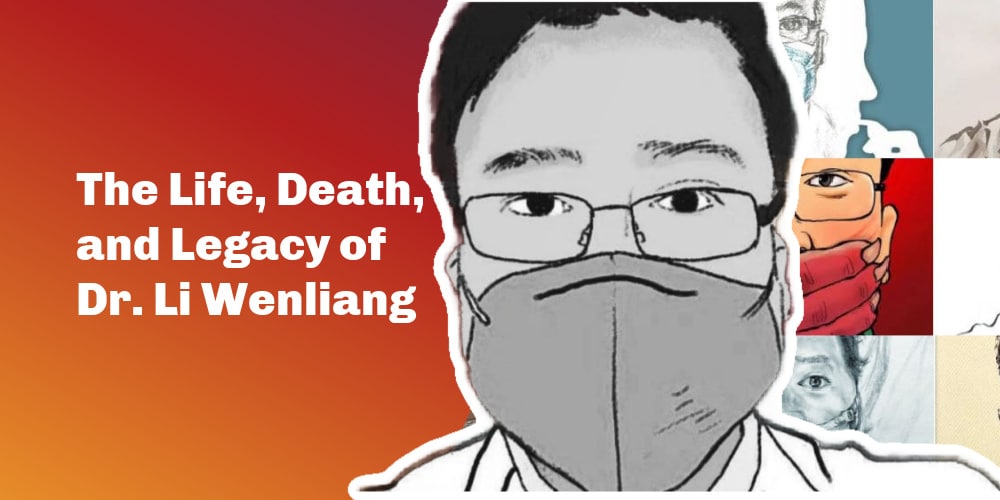
1  ︎ Dr. Li Wenliang |During China’s COVID years, there were a few pivotal moments when social media served as a platform for venting anger, frustration, and even despair, such as the moment the ‘Voices of April’ video flooded the internet (read). The first major social media storm revolved around Dr. Li Wenliang, one of the doctors who initially attempted to raise the alarm about the coronavirus outbreak in late December 2019. The convoluted information surrounding his tragic death in February 2020 exemplified the underlying problems in the handling of the Wuhan pneumonia outbreak in China. We first covered the story when it happened here, and then made a podcast about Dr. Li’s legacy a year later here (by the way, would you like us to do more podcasts? Let us know!)
︎ Dr. Li Wenliang |During China’s COVID years, there were a few pivotal moments when social media served as a platform for venting anger, frustration, and even despair, such as the moment the ‘Voices of April’ video flooded the internet (read). The first major social media storm revolved around Dr. Li Wenliang, one of the doctors who initially attempted to raise the alarm about the coronavirus outbreak in late December 2019. The convoluted information surrounding his tragic death in February 2020 exemplified the underlying problems in the handling of the Wuhan pneumonia outbreak in China. We first covered the story when it happened here, and then made a podcast about Dr. Li’s legacy a year later here (by the way, would you like us to do more podcasts? Let us know!)
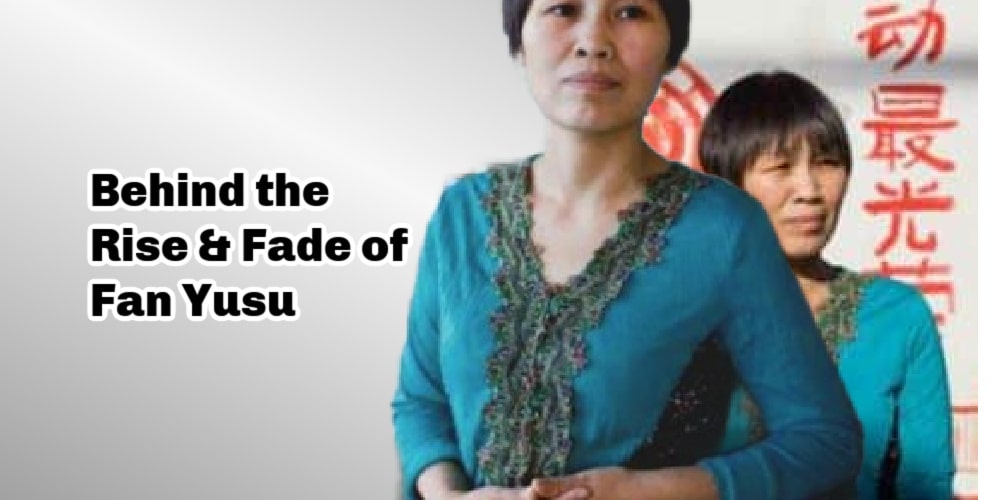
2  ︎ “We Are All Fan Yusu” | Beijing migrant worker Fan Yusu became an overnight sensation when her autobiographical essay “I Am Fan Yusu” went viral on Chinese social media in late April 2017. The topics she so openly discussed in her essay, from domestic violence to social inequality, resonated with millions. After she became famous overnight, the author went into hiding and her essay was taken offline. What’s behind the sudden rise and silent disappearance of China’s biggest literary sensation of 2017? What’s on Weibo was among the first to cover her story in English and translate her full essay.
︎ “We Are All Fan Yusu” | Beijing migrant worker Fan Yusu became an overnight sensation when her autobiographical essay “I Am Fan Yusu” went viral on Chinese social media in late April 2017. The topics she so openly discussed in her essay, from domestic violence to social inequality, resonated with millions. After she became famous overnight, the author went into hiding and her essay was taken offline. What’s behind the sudden rise and silent disappearance of China’s biggest literary sensation of 2017? What’s on Weibo was among the first to cover her story in English and translate her full essay.
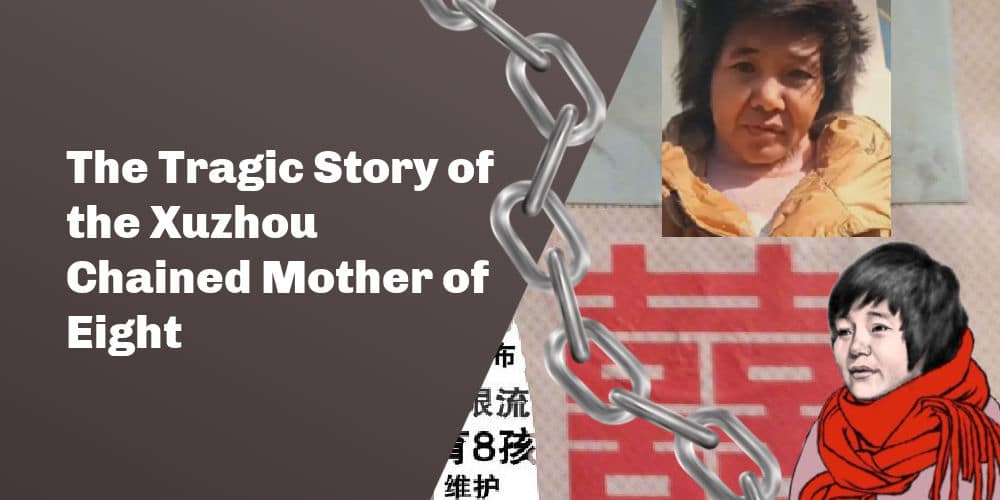
3  ︎ The Chained Mother | A TikTok video showing a mother of eight young children living in a small hut with an iron chain around her neck sent shockwaves across Chinese social media in January of 2022. Despite local authorities claiming that the woman was suffering from mental illness and was receiving care, online sleuths began unraveling the mystery surrounding her. This story had a significant impact in China, both online and offline, raising public awareness about the issue of human trafficking in China’s countryside and ultimately resulting in six convictions. What’s on Weibo was among the first English-language websites to report on the case, and we published multiple articles on the topic as the case unfolded in real-time. Click here for an overview of all related articles.
︎ The Chained Mother | A TikTok video showing a mother of eight young children living in a small hut with an iron chain around her neck sent shockwaves across Chinese social media in January of 2022. Despite local authorities claiming that the woman was suffering from mental illness and was receiving care, online sleuths began unraveling the mystery surrounding her. This story had a significant impact in China, both online and offline, raising public awareness about the issue of human trafficking in China’s countryside and ultimately resulting in six convictions. What’s on Weibo was among the first English-language websites to report on the case, and we published multiple articles on the topic as the case unfolded in real-time. Click here for an overview of all related articles.
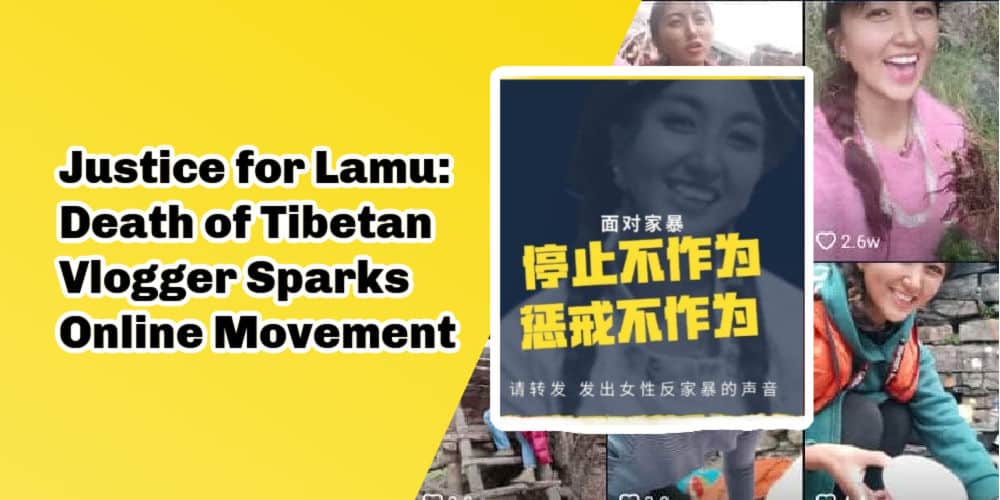
4  ︎ Justice for Lamu | The popular Tibetan Douyin vlogger Lamu died after her husband attacked her and set her on fire inside her own home. After her tragic death, Chinese netizens collectively raised their voices against domestic violence and called on authorities to do more to protect and legally empower victims of domestic abuse. Besides our article on this topic, we also did a podcast about Lamu and the aftermath.
︎ Justice for Lamu | The popular Tibetan Douyin vlogger Lamu died after her husband attacked her and set her on fire inside her own home. After her tragic death, Chinese netizens collectively raised their voices against domestic violence and called on authorities to do more to protect and legally empower victims of domestic abuse. Besides our article on this topic, we also did a podcast about Lamu and the aftermath.
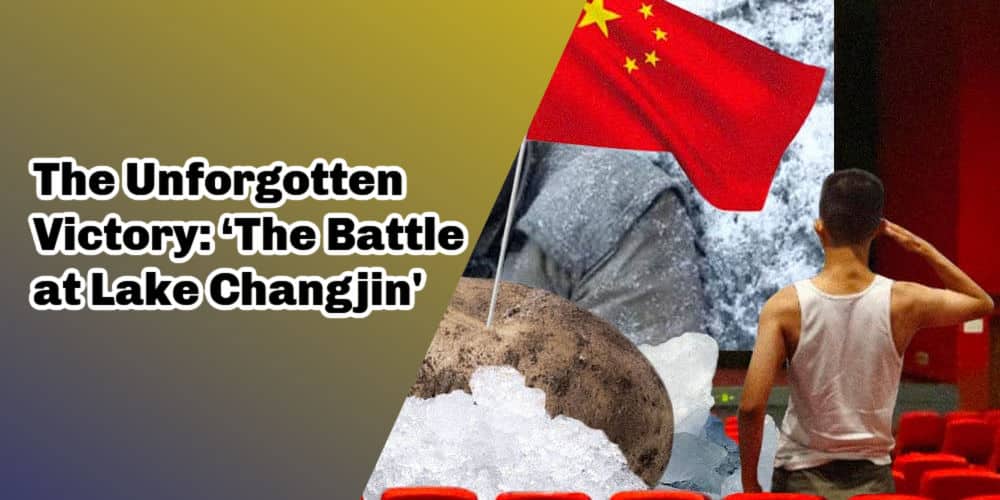
5  ︎ Battle Glorified | Over the years, there have been several noteworthy Chinese films that became social media phenomena, including Wolf Warrior II and The Wandering Earth. The most significant Chinese movie of 2021 was The Battle at Lake Changjin (长津湖). This war epic not only dominated all top trending lists on Chinese social media but also became an unprecedented box office hit during a period of heightened anti-American sentiments and official narratives emphasizing China’s victory in the Korean War.
︎ Battle Glorified | Over the years, there have been several noteworthy Chinese films that became social media phenomena, including Wolf Warrior II and The Wandering Earth. The most significant Chinese movie of 2021 was The Battle at Lake Changjin (长津湖). This war epic not only dominated all top trending lists on Chinese social media but also became an unprecedented box office hit during a period of heightened anti-American sentiments and official narratives emphasizing China’s victory in the Korean War.
What Went Viral
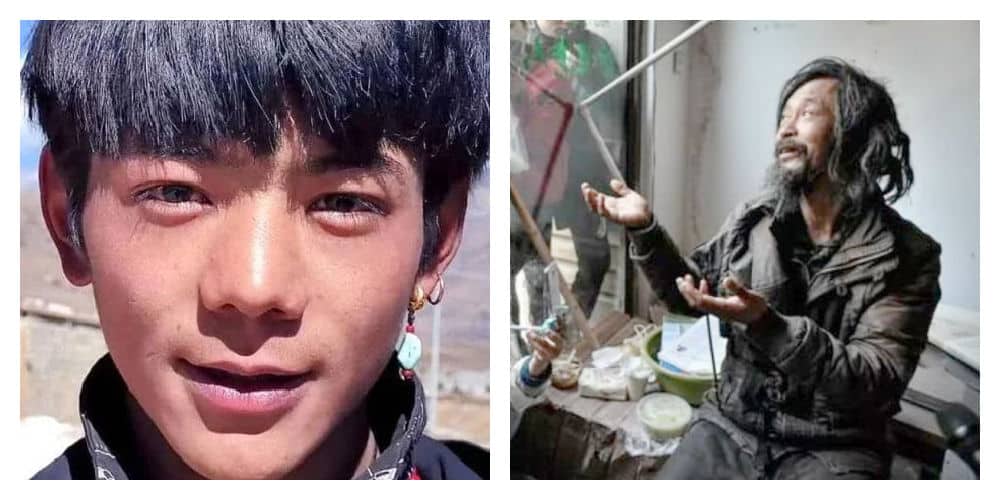
Ding Zhen and the Vagrant Professor
Every now and then, ordinary yet remarkable people achieve overnight fame because vloggers capture their story, smile, or charm, resulting in viral videos. Ding Zhen and the Vagrant Professor serve as prime examples of the profound impact of sudden fame, where life is forever altered. Ding Zhen, a 20-year-old farmer from Litang in the Kham region of Tibet, unwittingly rose to online stardom after being featured in a blogger’s photography session (read more or listen to our podcast). The Vagrant Professor, a homeless man who eloquently discussed literature and philosophy on the streets of Shanghai, also experienced a dramatic change in his life after going viral on Chinese social media (learn more).

Fu Yuanhui and the Question-Asking Bitch
One moment can make someone famous and unleash a flood of memes. Chinese Olympic swimmer Fu Yuanhui became a sensation on Chinese social media after she finished third in the women’s 100m backstroke in Rio de Janeiro in 2016. More than for her swimming skills, the 20-year-old athlete was praised for her funny expressions and down-to-earth attitude (read).In 2018, a Chinese female journalist attracted the attention of netizens when she disapprovingly glanced at the woman next to her posing a question during the Two Session, and then rolled her eyes (link). Both Fu and the so-called ‘question-asking bitch’ became a source of online banter and dozens of memes.
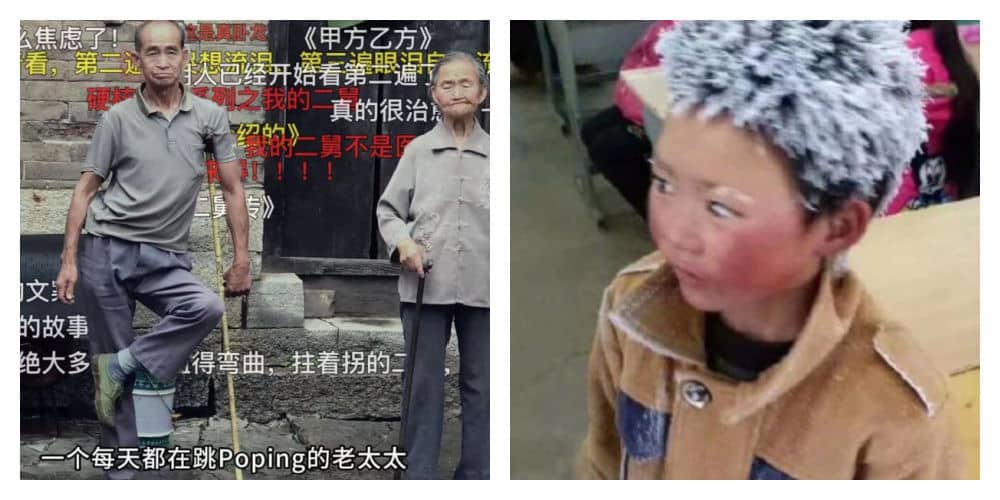
Uncle Carpenter and the Yunnan Ice Boy
China has so many faces, and people across the country are not always aware of other people’s everyday realities. Think about the mountainous villages where society is not yet very much digitalized, where parents often leave for work in the city, leaving the elderly and the young behind. In such places, a single photo or video can turn someone into a sensation and represent a much broader reality. Think of Uncle Carpenter’s story or the Yunnan ice boy’s picture as illustrations of this trend.

Tran Tyrant and Tyrant Train Woman
Sometimes people go insta-viral due to their nasty or rude behavior. This was the case for the Shandong man who refused to give up the seat he took from another passenger. He became known as the “High-Speed Train Tyrant” (高铁霸座男 gāotiě bà zuò nán) on Chinese social media (read). Later, a female passenger’s rude behavior also went trending on Chinese social media. Some netizens figured these two ‘high-speed train tyrants’ (高铁霸座) deserve each other, creating memes putting them together (link).
What Is Iconic
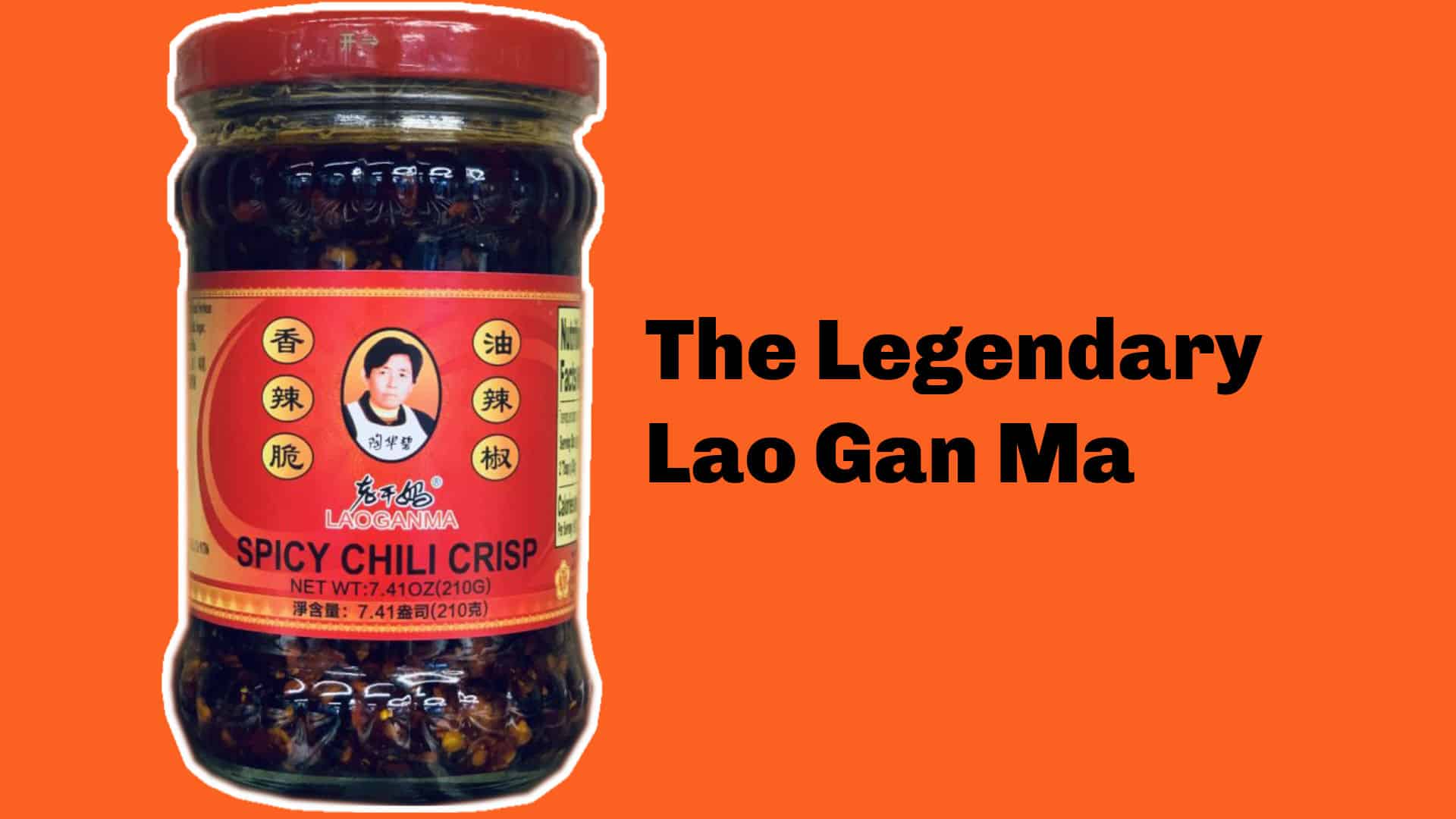
You might know the chili sauce Lao Gan Ma, a household name in China. But maybe you’re less familiar with the story behind the sauce and its founder, which has inspired millions of people and has made ‘Old Godmother’ Tao Huabi a notable figure in Chinese contemporary culture today. For many, the successful businesswoman and ‘chili sauce queen’ is an embodiment of the ‘Chinese dream.’
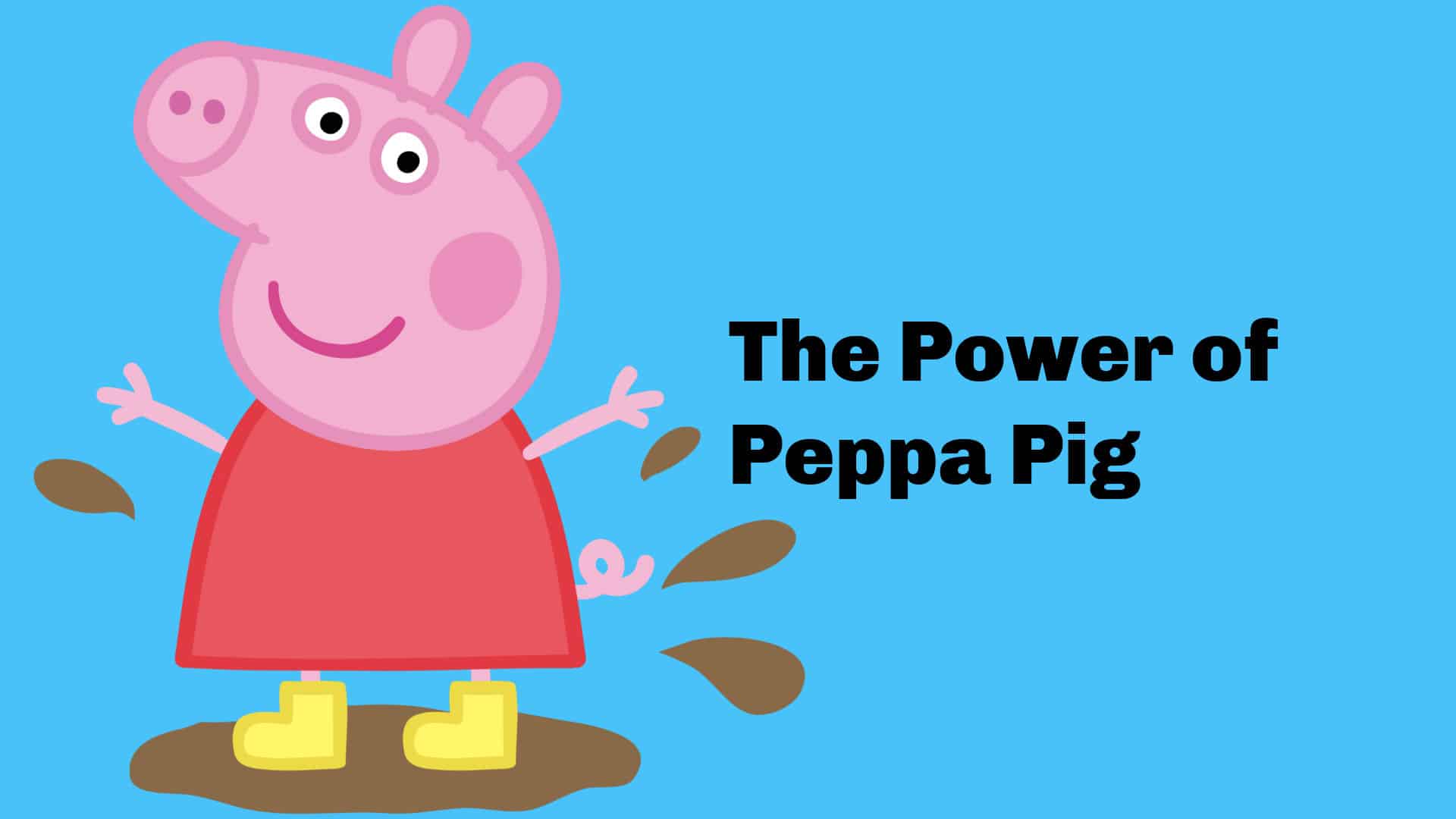
From innocent children’s cartoon via subculture icon to banned topic; Peppa Pig has had a rollercoaster ride in China. In 2018, Peppa Pig became a subversive symbol to a Chinese online youth subculture dubbed ‘shehuiren‘ (社会人), literally ‘society people’, which is a group of young adults that is anti-establishment and somewhat ‘punk’ in their own way; going against mainstream values and, as state media outlet Global Times put it, are “the antithesis of the young generation the Party tries to cultivate.”

Perhaps you’ve seen the famous fighting scenes of Tarantino’s Kill Bill, know who Bruce Lee is, and have watched a kung fu movie at least once in your life – but do you know the Shaw Brothers enterprise? It’s the production company that gave martial art its worldly success on the big screen. Shaw Brothers made everybody go ‘kung fu fighting’, creating a unique Chinese cinema. Run Shaw, the last of the Shaw Brothers, passed away on Jan 7th 2014 at the age of 107, after which we published this short history of the Shaw Brothers & Chinese cinema.
What’s Controversial

 ︎ “Seriously China?!” | In 2016, a Chinese ad campaign for washing detergent brand Qiaobi (俏比) that aired on TV and in cinemas started making its rounds on the internet, drawing much controversy for being “completely racist”. Read more.
︎ “Seriously China?!” | In 2016, a Chinese ad campaign for washing detergent brand Qiaobi (俏比) that aired on TV and in cinemas started making its rounds on the internet, drawing much controversy for being “completely racist”. Read more.

 ︎ “Too Loud, Too Rude” | “They’re loud and rude, and spit on the floor.” An article in Swiss newspaper Heute reported about locals being digruntled with Chinese tourists, leading to Rigi Rails introducing special coaches for Asian tourists. The news triggered mixed reactions amongst Weibo’s netizens. Read more.
︎ “Too Loud, Too Rude” | “They’re loud and rude, and spit on the floor.” An article in Swiss newspaper Heute reported about locals being digruntled with Chinese tourists, leading to Rigi Rails introducing special coaches for Asian tourists. The news triggered mixed reactions amongst Weibo’s netizens. Read more.
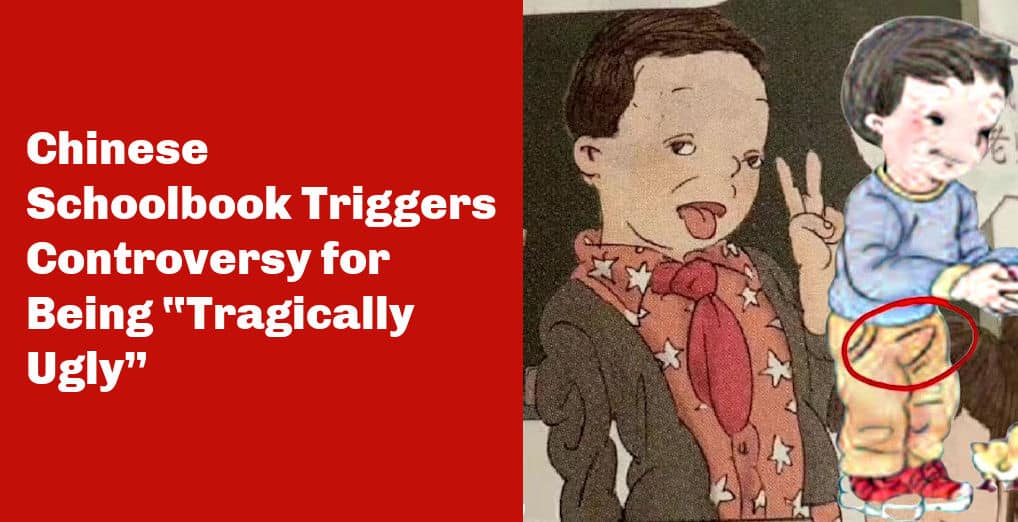
 ︎ Math Schoolbook Gate | It’s the textbook illustration controversy that dominated Chinese social media in Spring of 2022. After parents notes that the drawings in their children’s school math textbooks were “displeasing,” the entire Chinese internet weighed in and concluded that the overall design was just strange and “tragically ugly.” The controversy had some serious consequences for the publisher. Read here.
︎ Math Schoolbook Gate | It’s the textbook illustration controversy that dominated Chinese social media in Spring of 2022. After parents notes that the drawings in their children’s school math textbooks were “displeasing,” the entire Chinese internet weighed in and concluded that the overall design was just strange and “tragically ugly.” The controversy had some serious consequences for the publisher. Read here.
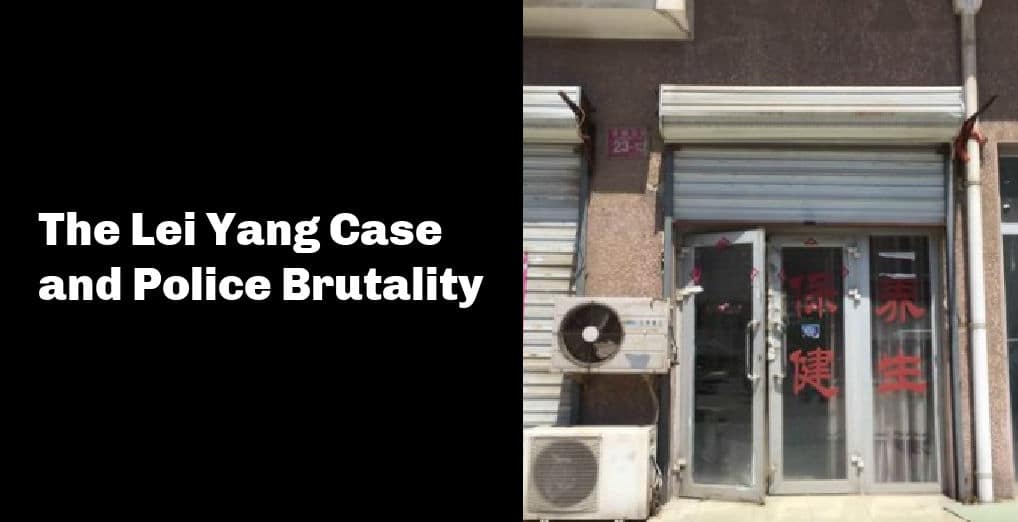
 ︎ Controversial Death | Some netizens called it one of the biggest controversies of the year. The death of the 29-year-old environmentalist Lei Yang while in police custody sparked online outrage in 2016, with many connecting this fatality to police brutality. Lei’s wife stepped forward, demanding answers from Beijing authorities on the circumstances surrounding her husband’s death. Read here.
︎ Controversial Death | Some netizens called it one of the biggest controversies of the year. The death of the 29-year-old environmentalist Lei Yang while in police custody sparked online outrage in 2016, with many connecting this fatality to police brutality. Lei’s wife stepped forward, demanding answers from Beijing authorities on the circumstances surrounding her husband’s death. Read here.
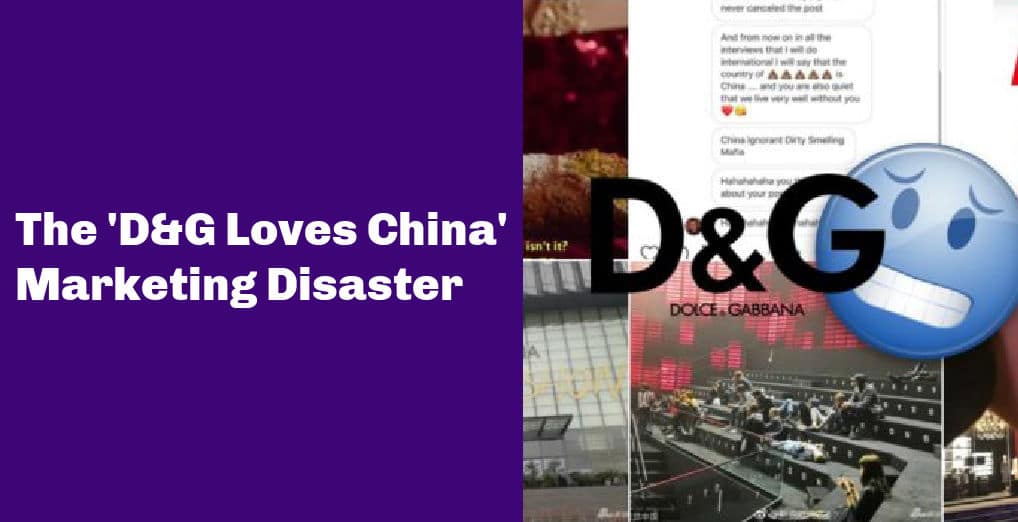
 ︎ Marketing Controversy | There’ve been many China marketing disasters throughout the years, often relating to foreign brands in politically tense times (think of all the brands getting into trouble for listing Hong Kong separately from China during the Hong Kong protests). The 2018 D&G controversy is a classic one that completely struck a wrong chord. It started with a promotional video that was deemed racist, got really messy when screenshots went viral of a China-bashing online conversation with the alleged Stefano Gabbana, started snowballing when D&G claimed the account was hacked, and ended with the cancellation of Dolce & Gabbana’s big Shanghai show. Read here.
︎ Marketing Controversy | There’ve been many China marketing disasters throughout the years, often relating to foreign brands in politically tense times (think of all the brands getting into trouble for listing Hong Kong separately from China during the Hong Kong protests). The 2018 D&G controversy is a classic one that completely struck a wrong chord. It started with a promotional video that was deemed racist, got really messy when screenshots went viral of a China-bashing online conversation with the alleged Stefano Gabbana, started snowballing when D&G claimed the account was hacked, and ended with the cancellation of Dolce & Gabbana’s big Shanghai show. Read here.
What’s Shocking

 ︎ An incident in which a Shanghai man, who was thought to be dead, was taken to a funeral home before he was found to be alive became a big topic on Chinese social media. Link.
︎ An incident in which a Shanghai man, who was thought to be dead, was taken to a funeral home before he was found to be alive became a big topic on Chinese social media. Link.

 ︎ Chinese underworld kingpin Zhao Fuqiang turned his Shanghai “Little Red Mansion” into a hell on earth for dozens of women who were forced into a life of sex work within his organized crime network. Link.
︎ Chinese underworld kingpin Zhao Fuqiang turned his Shanghai “Little Red Mansion” into a hell on earth for dozens of women who were forced into a life of sex work within his organized crime network. Link.
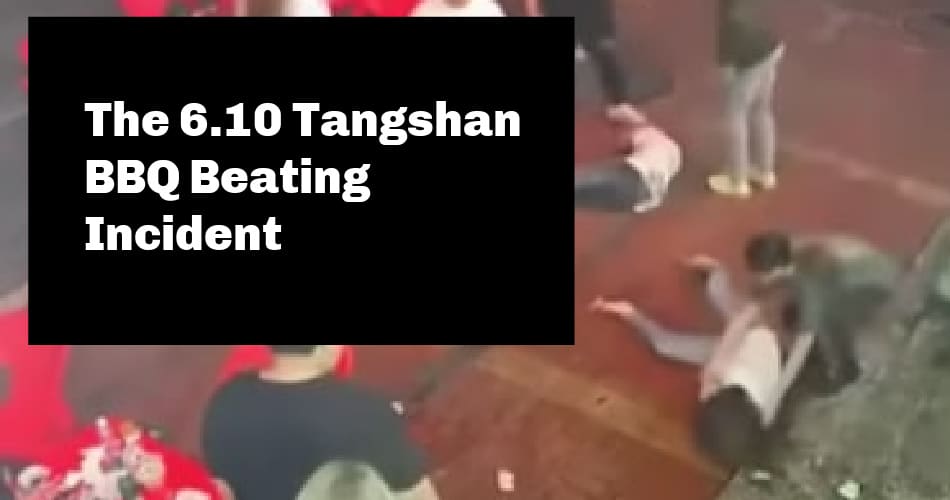
 ︎ An outburst of violence against female customers at a restaurant in Tangshan sent shockwaves across Chinese social media in 2022. Link.
︎ An outburst of violence against female customers at a restaurant in Tangshan sent shockwaves across Chinese social media in 2022. Link.

 ︎ A man killed his wife in Shanxi in the middle of the street, yet nobody intervened. Link.
︎ A man killed his wife in Shanxi in the middle of the street, yet nobody intervened. Link.
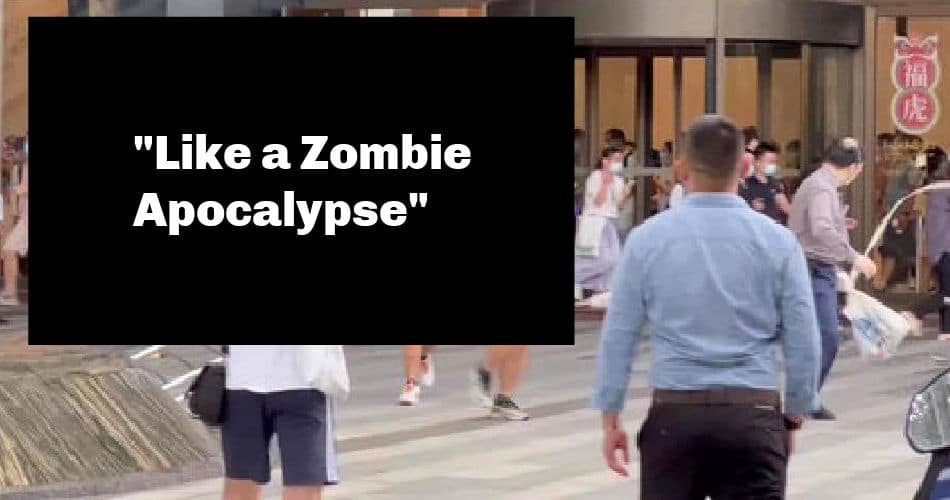
 ︎ Following the announcement of a positive Covid test result within a building in Shanghai’s Yangpu District, a collective exodus ensued as people wanted to avoid getting locked inside. Link.
︎ Following the announcement of a positive Covid test result within a building in Shanghai’s Yangpu District, a collective exodus ensued as people wanted to avoid getting locked inside. Link.
What’s Funny

 ︎ Lego for Adults | A man who spent three days and three nights working on a Nick the Fox Lego sculpture was left aghast when his masterwork was pushed over by a little kid – just within an hour after it was first displayed.
︎ Lego for Adults | A man who spent three days and three nights working on a Nick the Fox Lego sculpture was left aghast when his masterwork was pushed over by a little kid – just within an hour after it was first displayed.
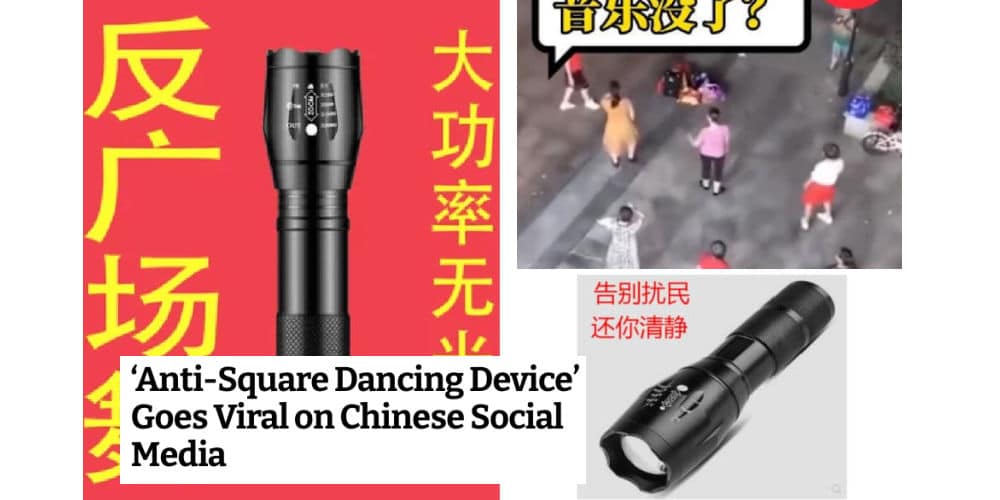
 ︎ Avenging the Grannies | Over the years, there have been numerous stories related to China’s notorious dancing grannies, including incidents where stressed-out students were disrupted by their loud music. Thanks to this device that went viral in 2021, neighbors have a way to respond to the local square dancing group by secretly shutting down their music.
︎ Avenging the Grannies | Over the years, there have been numerous stories related to China’s notorious dancing grannies, including incidents where stressed-out students were disrupted by their loud music. Thanks to this device that went viral in 2021, neighbors have a way to respond to the local square dancing group by secretly shutting down their music.
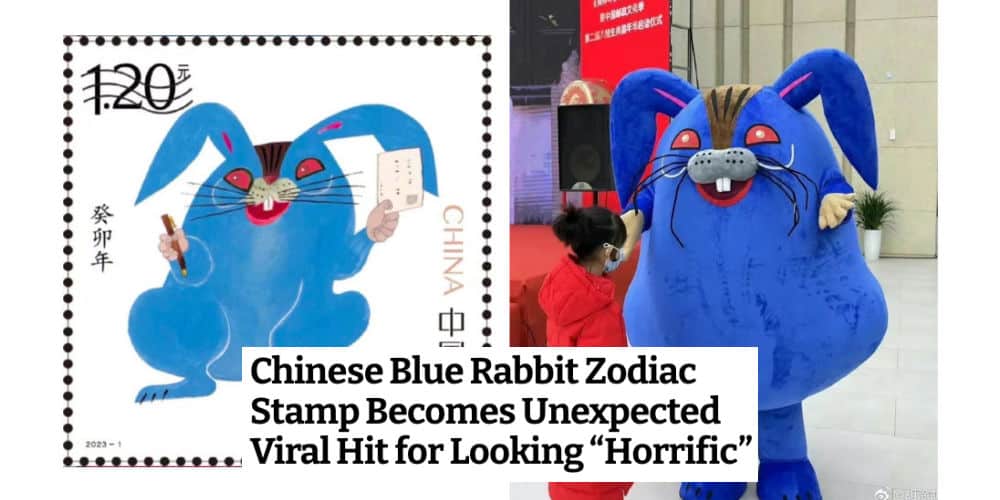
 ︎ Rabbit gets Roasted | A zodiac stamp issued by China Post on the occasion of the Year of the Rabbit became an unexpected viral hit in January of 2023. Not because of its pretty design, but because the red-eyed blue rabbit triggered controversy for being “monster-like” and “nightmare fuel.” It was not the only rabbit getting roasted!
︎ Rabbit gets Roasted | A zodiac stamp issued by China Post on the occasion of the Year of the Rabbit became an unexpected viral hit in January of 2023. Not because of its pretty design, but because the red-eyed blue rabbit triggered controversy for being “monster-like” and “nightmare fuel.” It was not the only rabbit getting roasted!
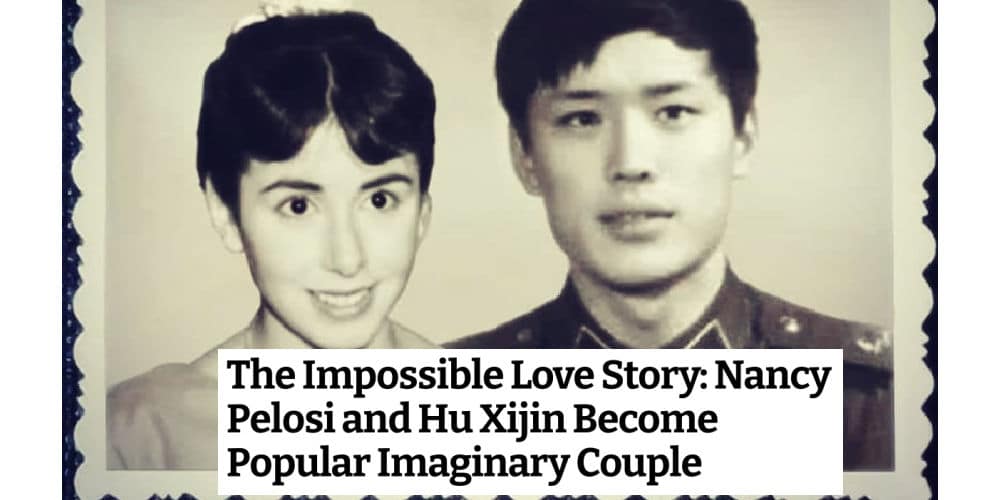
 ︎ Cute Couple | While everybody was watching whether or not Nancy Pelosi would visit Taiwan in August of 2022, there was still time for some online banter amid growing tensions: Chinese netizens created a fantasy love affair between U.S. House speaker Pelosi and Chinese Global Times commentator Hu Xijin.
︎ Cute Couple | While everybody was watching whether or not Nancy Pelosi would visit Taiwan in August of 2022, there was still time for some online banter amid growing tensions: Chinese netizens created a fantasy love affair between U.S. House speaker Pelosi and Chinese Global Times commentator Hu Xijin.

 ︎ Catch of the Day | It does not matter if you’re old or young, shrimp or fish – you couldn’t escape China’s zero-covid policy. These fish in Xiamen had to have their daily Covid tests, too.
︎ Catch of the Day | It does not matter if you’re old or young, shrimp or fish – you couldn’t escape China’s zero-covid policy. These fish in Xiamen had to have their daily Covid tests, too.
Weibo Words to Remember
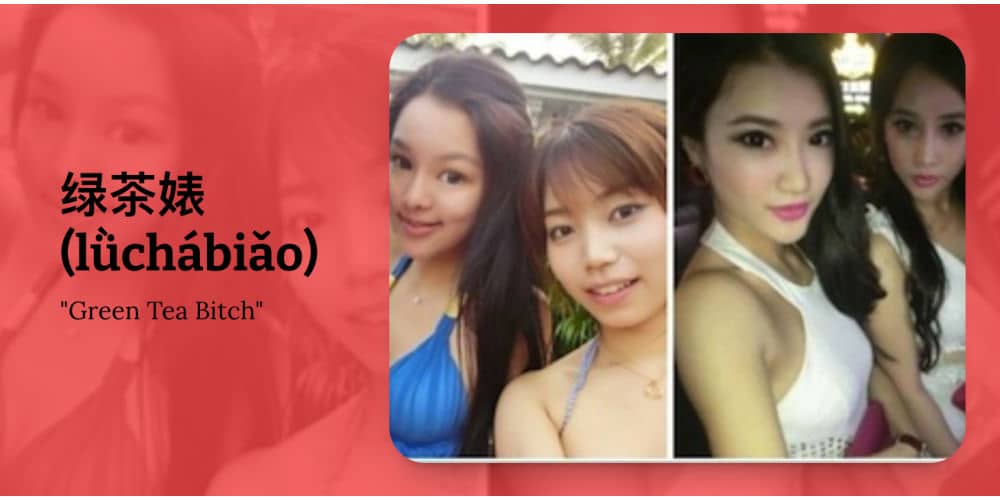
Green Tea Bitch | In the spring of 2013, a new term was launched over the Chinese Internet: ‘Green Tea Bitch’ (绿茶婊). According to Chinese netizens, the term is used to describe ambitious women who “pretend to be very innocent.”
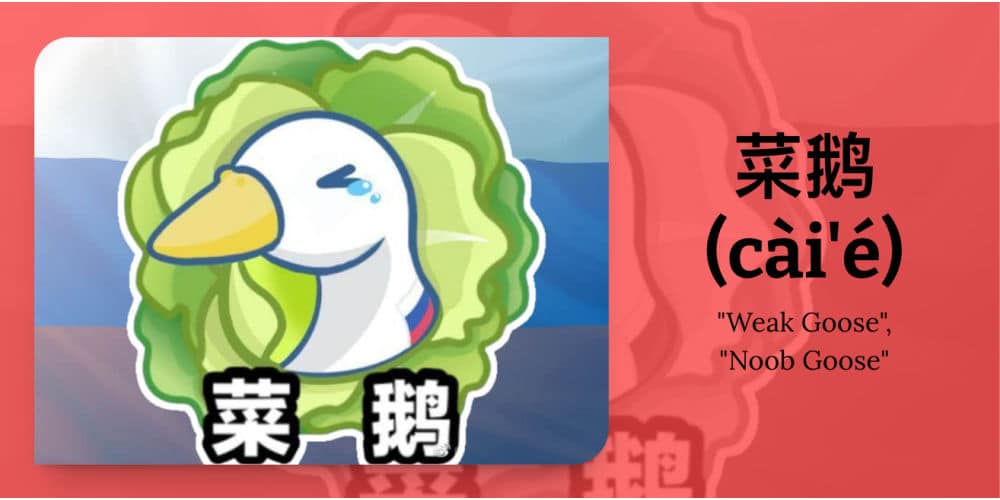
Russia, the ‘Weak Goose’ | In 2022, multiple Chinese (military) bloggers started using the ‘weak goose’ (菜鹅) term in light of Russia’s fading victory, signaling a shift in online sentiments regarding Russia’s position and its military competence.
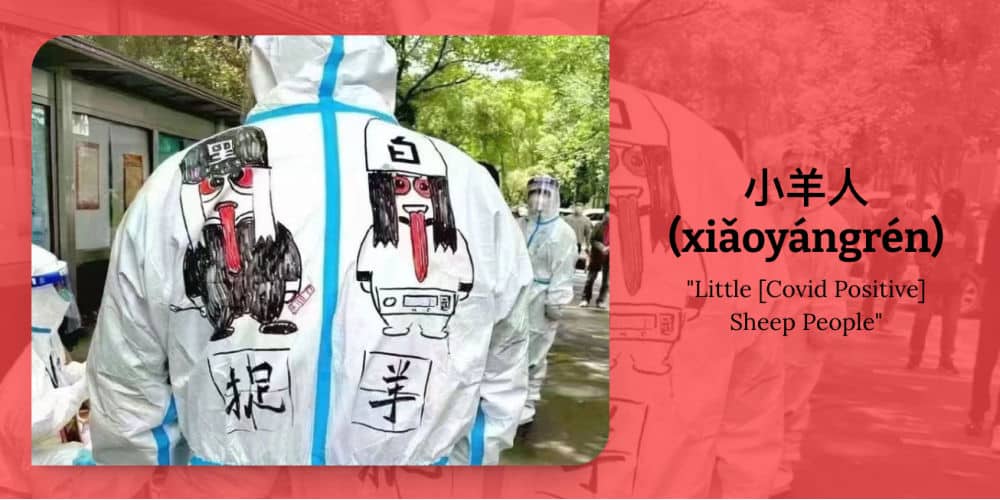
Little Sheep People | As many people faced Covid-related discrimination in China after testing positive in early 2022, social media users started speaking out against popular (online) language that refers to Covid patients as ‘sheep,’ saying the way people talk about the virus is worsening existing stigmatization.
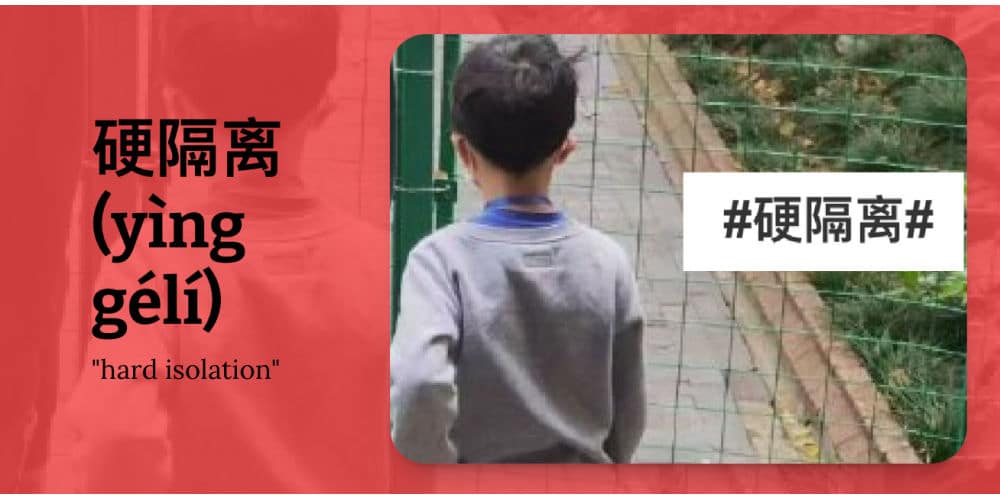
Hard Isolation | The word popped up on Chinese social media in April of 2022 after some Shanghai netizens posted photos of fences being set up around their community building to keep residents from walking out.
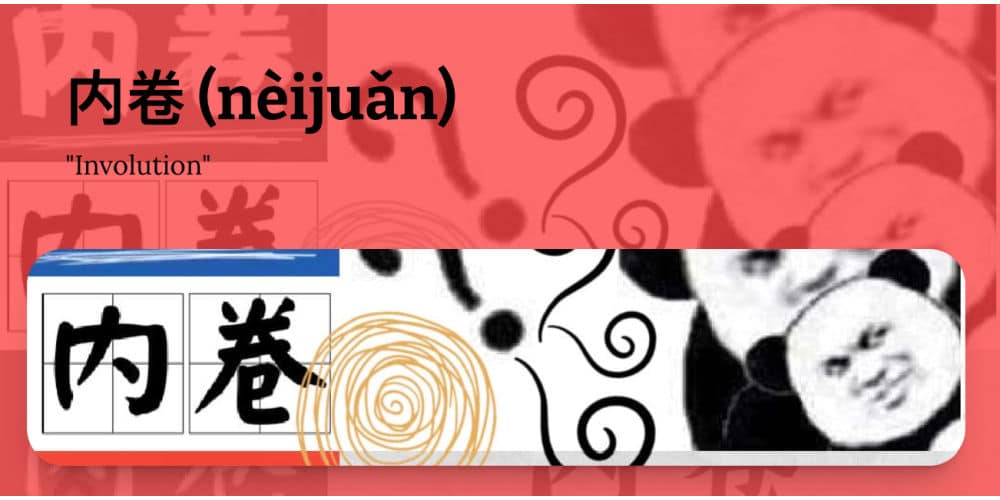
Involution | Since recent years, this word has come to be used to represent the competitive circumstances in academic or professional settings in China where individuals are compelled to overwork because of the standard raised by their peers who appear to be even more hardworking.
This is an on-site version of the Weibo Watch newsletter by What’s on Weibo. Missed last week’s newsletter? Find it here. If you are already subscribed to What’s on Weibo but are not yet receiving this newsletter in your inbox, please contact us directly to let us know.
The post Weibo Watch: A Decade of What’s on Weibo appeared first on What's on Weibo.